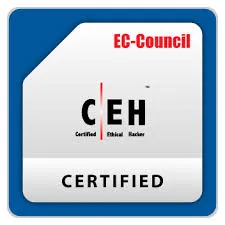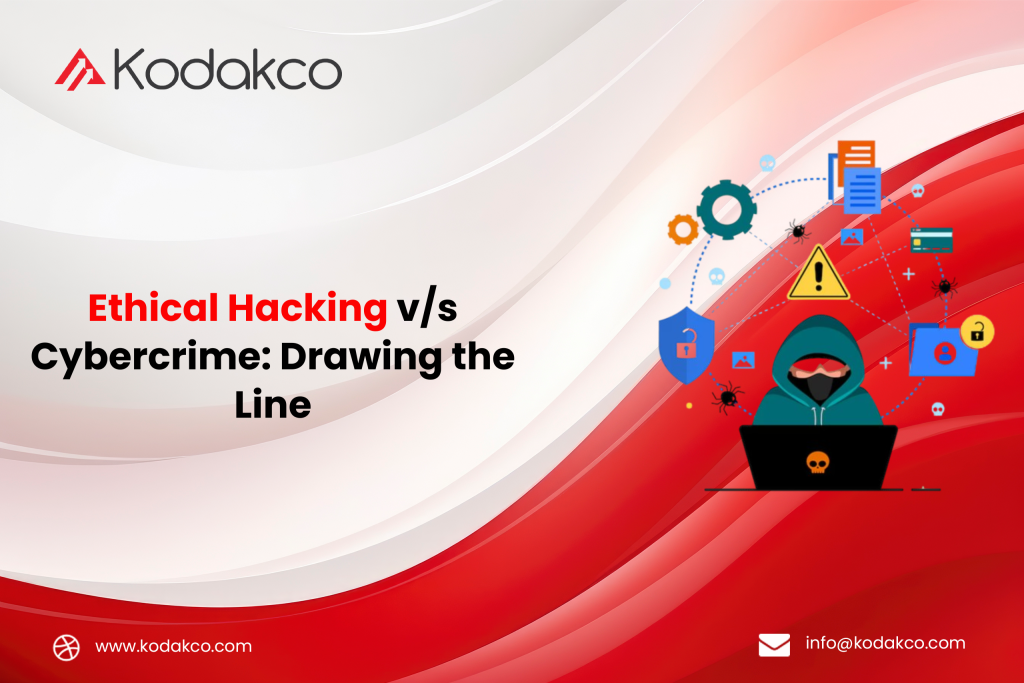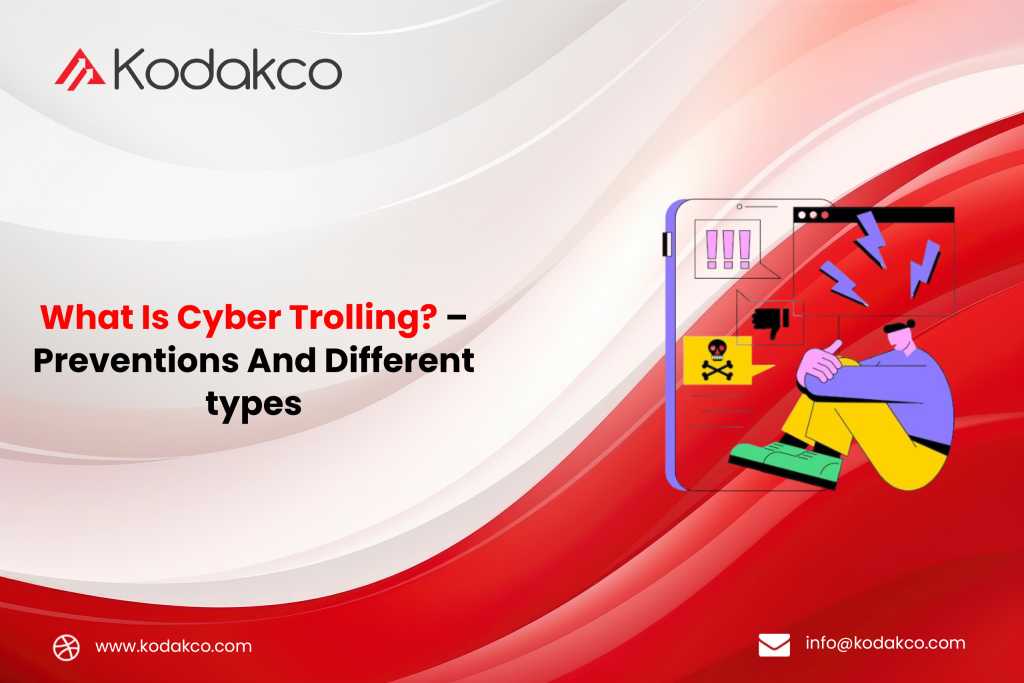In this so-called ‘Digital World’, where every inch of it is bracing to get crowded by digital citizens, the phrase “data is the new currency” sounds perfect. Nowadays Internet is flooded with extensive information and therefore it has become a level playing field for most geniuses, whether virtuous or vicious who are widely known as Hackers. Every other day has become a new normal for each of us to hear the news related to various new ‘biological viruses as well as ‘system viruses. Our personal and professional lives are dependent on digital systems like banking, communication, social media, etc. All of this reliance on technology has opened the landscape of coping with cybersecurity via Ethical Hacking and in this blog, we will be dealing with how Ethical Hacking can tackle cybercrime.
Different Types of Hackers
These Hackers, based on their intent can be broadly classified into the following categories:
1. White Hat Hackers
White Hat Hackers also called Ethical Hackers, are Cybersecurity pros who find weak spots in systems and break in. Big companies and government groups often hire them to do ethical hacking as part of their daily security work.
2. Black Hat Hackers
Black Hat Hackers are the tech freaks who act as sanguivorous and leverage the vulnerabilities of any system to satisfy their hunger for maximum benefits. For example- sending fishing e-mails, introducing new malware, cyberattack, etc.
3. Grey Hat Hackers
As the name suggests, Grey Hat Hacker lies somewhere between white hat and black hat hackers. According to them, they work for the public good but at the same time, their mode of conduct is ambiguous as they might penetrate any system without any legal consent.
What is Ethical Hacking?

“Your system has been hacked”. This is the last statement anyone will want to listen to in his/her life. Thus, to prevent these unfortunate conditions, Ethical Hacking comes in handy. Ethical Hacking is the technique by which white hat hackers permeate the computer system to identify any vulnerabilities. Although they use the same tools and tactics as the black hat hackers, they operate with the Model Code of Conduct which ensures their integrity and responsibility.
Objectives of Ethical Hacking
- Assessment of vulnerabilities and eliminate them
- Penetration Testing
- Protection of sensitive data and resources
- Safeguard against Malware
- Mitigate any damage caused by viruses
- Strengthening the security framework of any Organisation
- Search for potential places where hackers can attack
What is Cybercrime?

Cybercrime refers to an illegal breach of any computer system, internet, or network and is mostly carried out by cybercriminals through unauthorized access to extract maximum benefits. Majority of the cybercrime aims to achieve monetary gains but some of them intend to completely disrupt the functioning of computer systems.
Types of Cyber Crime
Several types of cybercrime are responsible for creating a ruckus in the society. Some of them are listed below.
- Hacking
Hacking is a situation where computer systems, networks, and devices fall under a compromising situation and hackers use this opportunity to steal safely protected data and information. They can even install any type of malware in any system and also take full control of it.
- Phishing
Ever gotten an email or message that looks legit where the sender tries to create a sense of urgency? They want you to fall for their trick and give up your personal info like OTPs, passwords, credit card details, or bank information. This is a textbook case of phishing.
- Malware
Malware short for malicious software, refers to nasty programs that bad guys create to infect your devices. This includes things like viruses, ransomware, spyware, worms, and trojans. Bad guys who hack use these tools to break into and take over gadgets. To gain access to sensitive data and further take advantage of it.
- Ransomware
Ransomware blocks user access to a system until someone pays the ransom. Big companies and organizations face ransomware attacks most often. Cybercriminals view this as a simple method to earn cash by demanding payment.
- Cyberterrorism
Cyberterrorism is a crucial part of cybercrime. In these cases, religious or ideological beliefs often push criminals to act. Their main aim is to disrupt major critical infrastructures and trigger fear among the masses.
How can Ethical Hacking Help in Facing Cybercrime?
People often struggle to tell apart ethical hacking from illegal hacking. Ethical hacking stands out as a key tool to help cut down on cybercrime. It is done by white hat hackers who are trained to detect the vulnerabilities on the system or device before black hat hackers can use it.
Ethical hacker uses the same tools and techniques as malicious hackers and therefore their modus operandi can be learned easily. In this way, they can come across any shortcomings of the devices and hence prevention can become the cure. Ethical Hacking plays an important role in eliminating all kinds of possibilities for any cyberattack. It can act like a superhero, setting boundaries that will be difficult to hack. Cybercrime are a potential threat to our society and ethical hacking is the exclusive solution to this problem.
Certified Ethical Hacker (CEH) Certification

This certification is provided by the International Council of Electronic Commerce Consultants (EC-Council) for obtaining the skills of Ethical Hacking. This certificate can be achieved only by taking the CEH exam.
Basics about the Exam
- Total Questions: 125
- Time Duration: 4 hours
- Exam Type: Multiple Choice Questions
- Validity: 3 years
Kodakco Cyber Security course

Kodakco is one of the leading platforms for upskilling and technology consultation. They provide various courses in Language, Medical, ERP, Management, etc. but one of the many courses provided by Kodakco is Cyber Security Course. This course generally covers elements like fundamentals of cyber security, ethical hacking, risk management, and incident response.
Kodakco provides two most important courses in cybersecurity:
- Post Graduate Programme in Cyber Security
- MBA in Cyber Security by College de Paris
Key features
- 288 hours of online classroom sessions
- Well-crafted curriculum per the latest trends
- Provide hands-on experience of real Projects in relevant industries
- Certification after course completion
- Highly skilled faculty
- Use of advanced tools and techniques for teaching
Key Benefits
All the cyber security courses provided by Kodakco are experimental i.e. they give learners a grounding in the theories but also enable them to apply those theories and practices in context. their Medical Coding Courses have flexible schedules that can be pursued in the comfort of your home.
Future Scope of Ethical Hacking
In the present scenario where jobs are scarce, Ethical Hacking could serve well especially for those who have sufficient knowledge of computers. Ethical Hacking provides lucrative job opportunities for individuals, seeking jobs in this field. There are many Ethical Hacking Courses present on the internet that can be used for upscaling your career advancement in this field. One can opt for a full-fledged job in this field or can work as a freelancer. In both cases, individuals are paid well depending on their range of work and talent.
Conclusion
Ethical hacking is one of the sole irreplaceable practices for eliminating cybercrimes at large. Apart from causing financial losses, cybercrime also brings damage to the reputation of an individual. Customers lose faith in the companies or respective governments if their data is breached, resulting in long-run damage. It can cause mental distress to the victims followed by facing various legal issues and the recovery becomes complicated. The looming threat of cybercrime globally necessitates increasing our cybersecurity methods otherwise it can create a whole lot of damage which will have sweeping after-effects.
FAQs
Ans: Yes, you can take Cybersecurity Courses Online. A number of websites offer cyber safety training you can take from your living room.
Ans: The requirements can change based on the program you’ve signed up for, but you need to know the basics of using computers (Linux), IT and networking, math, and coding. These skills are essential.
Ans: Ethical Hacking is the legal method to penetrate any system, network, or device to find any vulnerabilities and prevent them from falling into any compromised situations.
Ans: yes, ethical hacking is completely legal. Many white hat hackers are legally hired by Organisations, Companies, and even Legal Governments to prevent any attack by malicious hackers.
Ans: Yes, Ethical Hacking provides a lucrative career option. It gives a lot of opportunities in the field of cybersecurity as cybercrime is expanding its reach. With a proper degree, diploma, or certificate course you can become a valid Ethical Hacker.


